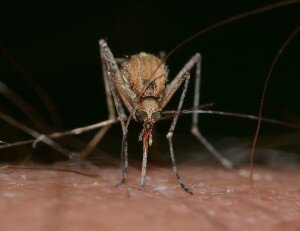Pokémon, Zika and Marijuana Are Creating New Concerns and New Risks for Condo Associations
By Stephen Marcus
The risks confronting condo associations are generally well-known. Although there are always variations on old themes, the risk fundamentals don’t tend to change much from year to year. But every now and then new risks emerge, like Loch-ness monsters from the deep, to threaten condo communities and challenge the boards and managers who oversee them. We have three new risks to add to association worry lists: Pokémon, Zika and Marijuana.
Pokémon
 Most references to this cell-phone based virtual reality game were initially lighthearted. But the tone quickly turned serious with reports of one player shot in California, a Pokémon-distracted driver killing a pedestrian in Japan, and mounting complaints about Pokémon players trespassing on private property – including Arlington Cemetery and the Holocaust Museum in Washington and Governor Charlie Baker’s residence in Swampscott.According to some estimates, 21 million people are now using the I-phone application daily. That represents a lot of people racing through neighborhoods and gathering uninvited on lawns. A California attorney has filed two law suits thus far on behalf of homeowners in Michigan and New Jersey, alleging that the game has created a serious nuisance for them. The Washington Post reported recently that a small town in Virginia has been overrun by hordes of Pokémon-obsessed players, transforming what was once a sleepy, picturesque community into “a virtual-reality super highway.” And condominium attorneys are fielding more questions from association clients wondering what they can do about Pokémon players running around association property, disturbing residents and annoying staff members.Dealing with non-residents is fairly straightforward: Board members, managers or annoyed residents can simply call the police and have them deal with people who are trespassing on private property. If your community has been designated a Pokémon site (which you would learn only when you see hordes of people you don’t recognize running around with cell phones in hand), you can file an on-line request to have your property de-listed at: https://support.Pokémon go.nianticlabs.com/hc/en-us/articles/222249687-What-can-we-help-you-with. It’s not clear how effective these requests will be – critics say, not very effective at all – but it’s easy enough to do and probably worth the effort. That said, calling the police will probably produce more immediate results. As one attorney pointed out: “Saying, ‘I’m playing Pokémon,’ is not a defense against a trespassing charge.”Players in ResidenceBut not all Pokémon players are trespassers. Many are community residents. A recent blog posting described the problems resulting when they “congregate at all hours” in common areas, “causing significant nuisances and safety concerns for community residents and staff.”You can’t tell residents to leave ─ they have a right to be there ─ but you can enforce the nuisance provision in your documents prohibiting them from disturbing other residents. As a start, you might post or print a message reminding residents of their obligation to be considerate of their neighbors and to obey association rules (barring nuisances). If many residents are Pokémon players, you might also designate times when they can play in common areas without disturbing others ─ for example, not before a specified hour in the morning or later than a specified time in the evening, or only during times when resident use of common area facilities (pool, clubhouse, meeting rooms) is relatively slack.There is one other concern that merits more attention than it has received: Pokémon play by employees, during work hours. This could be an issue not just for management companies, but also for associations that directly employ on-site managers, maintenance personnel, or other staff members. Apart from the obvious concern about lost productivity (if employees are chasing Pokémon creatures, they probably are not doing the work for which they are being paid), there are also liability risks, for example: If your Pokémon-distracted employee injures another driver or a pedestrian while driving an association vehicle or any vehicle at all on association business. There are also data security concerns when employees download or access I-phone apps related to the game. A few suggestions associations should consider in the employment area:
Most references to this cell-phone based virtual reality game were initially lighthearted. But the tone quickly turned serious with reports of one player shot in California, a Pokémon-distracted driver killing a pedestrian in Japan, and mounting complaints about Pokémon players trespassing on private property – including Arlington Cemetery and the Holocaust Museum in Washington and Governor Charlie Baker’s residence in Swampscott.According to some estimates, 21 million people are now using the I-phone application daily. That represents a lot of people racing through neighborhoods and gathering uninvited on lawns. A California attorney has filed two law suits thus far on behalf of homeowners in Michigan and New Jersey, alleging that the game has created a serious nuisance for them. The Washington Post reported recently that a small town in Virginia has been overrun by hordes of Pokémon-obsessed players, transforming what was once a sleepy, picturesque community into “a virtual-reality super highway.” And condominium attorneys are fielding more questions from association clients wondering what they can do about Pokémon players running around association property, disturbing residents and annoying staff members.Dealing with non-residents is fairly straightforward: Board members, managers or annoyed residents can simply call the police and have them deal with people who are trespassing on private property. If your community has been designated a Pokémon site (which you would learn only when you see hordes of people you don’t recognize running around with cell phones in hand), you can file an on-line request to have your property de-listed at: https://support.Pokémon go.nianticlabs.com/hc/en-us/articles/222249687-What-can-we-help-you-with. It’s not clear how effective these requests will be – critics say, not very effective at all – but it’s easy enough to do and probably worth the effort. That said, calling the police will probably produce more immediate results. As one attorney pointed out: “Saying, ‘I’m playing Pokémon,’ is not a defense against a trespassing charge.”Players in ResidenceBut not all Pokémon players are trespassers. Many are community residents. A recent blog posting described the problems resulting when they “congregate at all hours” in common areas, “causing significant nuisances and safety concerns for community residents and staff.”You can’t tell residents to leave ─ they have a right to be there ─ but you can enforce the nuisance provision in your documents prohibiting them from disturbing other residents. As a start, you might post or print a message reminding residents of their obligation to be considerate of their neighbors and to obey association rules (barring nuisances). If many residents are Pokémon players, you might also designate times when they can play in common areas without disturbing others ─ for example, not before a specified hour in the morning or later than a specified time in the evening, or only during times when resident use of common area facilities (pool, clubhouse, meeting rooms) is relatively slack.There is one other concern that merits more attention than it has received: Pokémon play by employees, during work hours. This could be an issue not just for management companies, but also for associations that directly employ on-site managers, maintenance personnel, or other staff members. Apart from the obvious concern about lost productivity (if employees are chasing Pokémon creatures, they probably are not doing the work for which they are being paid), there are also liability risks, for example: If your Pokémon-distracted employee injures another driver or a pedestrian while driving an association vehicle or any vehicle at all on association business. There are also data security concerns when employees download or access I-phone apps related to the game. A few suggestions associations should consider in the employment area:
- Develop a policy if you don’t have one (or amend an existing policy, if necessary) to control the use of mobile devices during work hours.
- Adopt an electronic use policy prohibiting unapproved downloads to employer-owned devices.
- Adopt a separate policy restricting the use of employee-owned devices that have access to employer networks.
- Adopt a policy specifically prohibiting employees from playing Pokémon (or any other game for that matter) during work hours and/or on association property.
Zika
Another risk that is (literally) bugging condo associations, Zika is a virus triggered by mosquito bites, with potentially devastating health effects. The primary concern is birth defects if a pregnant woman is infected, but there is also some evidence that the virus can cause serious illnesses in adults, as well. As the virus has spread from South America to the US, condominium industry professionals have been debating what responsibility, if any, condo associations have to protect owners. Some say associations have no obligation to prevent outbreaks and they caution against incurring liability where there is none. “Why don’t we just cure cancer and AIDS and the flu?” one skeptical condo attorney asked in an article posted by HOA Leader.Reasonable MeasuresOthers say boards should take reasonable steps to reduce Zika risks in their communities, and I agree. Owners who become infected are as likely to sue the association for failing to act as for taking actions that aren’t effective. So avoiding action won’t do much to reduce your liability risks, but it will prevent you from reducing infection risks for owners. There are moral and humanitarian considerations (these are your neighbors) as well as legal ones to weigh in assessing how much, or how little, boards should do. And there are a number of modest steps boards can take without significantly heightening liability concerns. Our suggestions:
As the virus has spread from South America to the US, condominium industry professionals have been debating what responsibility, if any, condo associations have to protect owners. Some say associations have no obligation to prevent outbreaks and they caution against incurring liability where there is none. “Why don’t we just cure cancer and AIDS and the flu?” one skeptical condo attorney asked in an article posted by HOA Leader.Reasonable MeasuresOthers say boards should take reasonable steps to reduce Zika risks in their communities, and I agree. Owners who become infected are as likely to sue the association for failing to act as for taking actions that aren’t effective. So avoiding action won’t do much to reduce your liability risks, but it will prevent you from reducing infection risks for owners. There are moral and humanitarian considerations (these are your neighbors) as well as legal ones to weigh in assessing how much, or how little, boards should do. And there are a number of modest steps boards can take without significantly heightening liability concerns. Our suggestions:
- Provide information about the virus, with references and/or links to additional information resources for owners.
- Inspect the community to identify conditions (standing water tops the list) in which mosquitoes can breed. Drain standing water, if that is feasible. It can collect in cans, bottles, and ditches, among other places. Outdoor fountains and birdbaths can also become mosquito breeding grounds.
- Outdoor spraying to eliminate mosquitoes is another option, but you will have to consider the concerns of chemically-sensitive residents. You may want to poll owners and possibly even have them vote on this step before implementing it.
- Use air conditioning to control the spread of mosquitoes. While this suggestion, which comes from the Centers for Disease Control, obviously undermines efforts to control energy costs, you may want to keep the air on in vacant units and in common area facilities (exercise and meeting rooms) when they aren’t being used.
- Take appropriate measures to protect employees. Recent guidance published by OSHA (the Occupational Safety and Health Administration) offers some helpful suggestions, among them:
- Inform employees of Zika risks.
- Provide insect repellant and protective clothing for people who work outdoors
- Offer special accommodations to pregnant women.
- Recognize that your management company may have to make accommodations for its employees that could affect the association’s management services. Be prepared to work with management companies to ensure that their employees are protected while minimizing disruptions for your community.
MARIJUANA
This isn’t a new issue, but it continues to evolve as the laws regulating the drug are changing. Massachusetts and Maine, which already permit the medically-prescribed use of marijuana, are among the five states that will ask voters in November whether they want to authorize recreational use of the drug as well. California, Arizona and Nevada are the other states offering this ballot question in the fall; Colorado, Washington state, Alaska, Oregon and the District of Columbia have already approved comparable recreational use measures. As we have noted in previous alerts ( click here and here) measures authorizing marijuana use raise complicated questions in condo communities, among them: How to reconcile state laws authorizing the medical or recreational use of marijuana with association bylaws prohibiting smoking in the community; how to balance the Fair Housing accommodation requests from owners with a medical need to use marijuana against the complaints of other owners who say they are sickened by the second-hand smoke from marijuana cigarettes; and how to deal with owners who are cultivating marijuana plants in their homes, as existing laws in Massachusetts and other states permit.Options for AssociationsApproval of measures permitting the recreational use of marijuana will arguably further complicate an already complex issue, but I think the general advice we’ve offered condominium clients in the past will still apply.
As we have noted in previous alerts ( click here and here) measures authorizing marijuana use raise complicated questions in condo communities, among them: How to reconcile state laws authorizing the medical or recreational use of marijuana with association bylaws prohibiting smoking in the community; how to balance the Fair Housing accommodation requests from owners with a medical need to use marijuana against the complaints of other owners who say they are sickened by the second-hand smoke from marijuana cigarettes; and how to deal with owners who are cultivating marijuana plants in their homes, as existing laws in Massachusetts and other states permit.Options for AssociationsApproval of measures permitting the recreational use of marijuana will arguably further complicate an already complex issue, but I think the general advice we’ve offered condominium clients in the past will still apply.
- If the community has a by-law prohibiting smoking, you can forbid owners from smoking marijuana recreationally, even if voters approve a measure allowing it. Concerns about second-hand smoke created by tobacco apply equally to marijuana.
- For communities that don’t have smoking bylaws in place, Federal law provides an additional weapon. The Federal Drug Administration (FDA) still classifies marijuana as a prohibited substance, making the possession or consumption of it, for medical or recreational purposes, illegal under federal law. (The FDA recently rejected a request to rethink its position.) Because most condo documents prohibit illegal activities, you could ban the possession or use of marijuana on that basis.
- While the Fair Housing Act may require you to provide accommodations for owners asserting a medical need for marijuana, that doesn’t necessarily mean you must waive a bylaw prohibiting smoking. You can legitimately ask if these owners can consume the drug by ingesting it – as a pill or an ingredient in foods – rather than by smoking it. If a doctor insists that only smoking the drug will work, the board may want to propose measures limiting the adverse impact on other owners: For example, asking owners to smoke only in areas where the smoke is less likely to bother other residents, or requiring the installation of filters to keep smoke from drifting to other units.
- Cultivation of marijuana (permitted by many medical marijuana laws) creates many additional concerns for condo associations, primary among them:
- Security. The market price ─ $3,000 - $4,000 per plant ─ makes them a tempting target for thieves; and
- Property damage. The heat, humidity and water the plants require create mold risks; high intensity lights are a potential fire hazard; and the increased utility usage, if shared rather than metered individually, could create an unfair burden on other owners.
Any of these concerns, and certainly all of them combined, would justify barring marijuana cultivation in the community. A more moderate position, less likely to invite a legal challenge, would be to impose reasonable restrictions, for example: Establishing standards for the equipment used, requiring periodic inspections to monitor for safety and compliance, and specifying that owners cultivating marijuana will be responsible for increased utility charges or other costs related to that activity.
It is difficult to predict how voters will respond to the marijuana ballot questions in November. Recent polls show a tight race in Massachusetts with passage more likely (though not certain) in Maine. But whatever the outcome of these votes, there is no question that marijuana (along with Zika and probably Pokémon, as well) will continue to pose legal, governance and other challenges for condominium associations. It is best to start thinking about these issues and formulating policies to deal with them before they arise – as complaints, litigation, conflicts among owners, or all of the above – in your community.
